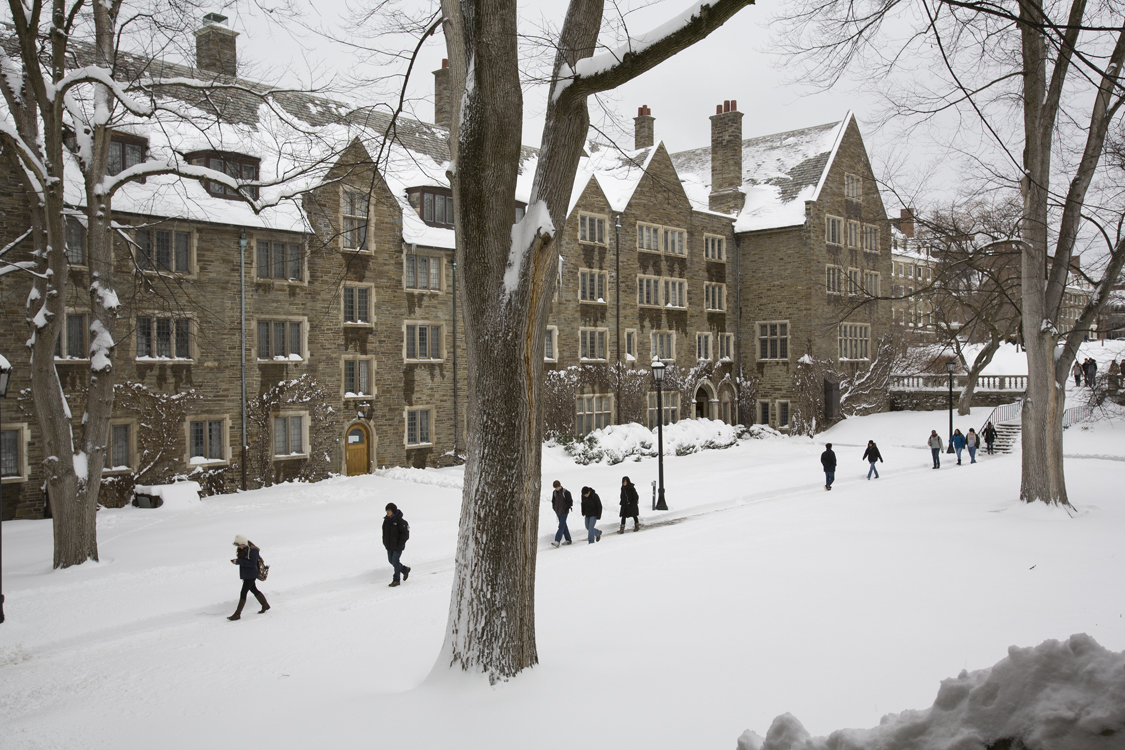Housing master plan to guide campus development
By Nancy Doolittle

Over the course of the spring semester, the Division of Student and Campus Life will engage with the Cornell and local communities on how best to meet the university’s current and future housing needs for undergraduate and graduate students. This input, along with an inventory and analysis of current housing, will be used to develop a Cornell housing master plan for the next decade.
“We need to ask ourselves and also ask our students, are we serving them in the best way? Are we facilitating their academic success; are we facilitating their personal development? Can our housing better meet the goals of fostering an engaged community and promoting a sense of personal connection to the university?” said Ryan Lombardi, vice president for student and campus life, who is overseeing the planning process. “And, it has been a number of years since the living-learning environments of North and West campuses were constructed. We want to measure how well these complexes are supporting and furthering the academic and community goals for which they were conceived.”
Student and Campus Life has engaged a consulting group, U3 Advisors, to conduct a nine-month housing master plan process for the Ithaca campus. U3 Advisors is nationally recognized for its real estate and economic development work with universities and municipalities, and has worked with Cornell on projects such as the Cornell Tech campus and the design of the proposed East Hill Village complex. U3 will conduct surveys and hold focus groups, interviews and community meetings.
“We have not done an overall study of Cornell housing since the economic downturn in 2008-09, and a lot has changed since then,” said project manager Marty Rauker, senior director of strategic initiatives for Student and Campus Life. “I look forward to seeing how our students’ needs and concerns have changed, and developing plans to address those changes, in concert with the university’s master plan.”
“We would like to get an objective assessment of how well our housing matches students’ preferences and interests. Even though there is no requirement for any student to live on campus, the overwhelming majority of first-year students choose to live on North Campus.” Rauker noted that student behavior over time indicates first-year students frequently want a roommate in a double room. After freshman year, students generally look for singles, suites or apartment living for more independence and privacy.
“We would like to quantify how our housing stacks up against those student preferences and proactively plan for the future,” he said. “U3 will help us identify changes we can implement that will make a difference to our students.”
A working group of undergraduate and graduate students, faculty and staff has been formed and held its initial meeting with U3 Advisors earlier this week. The group includes Student Assembly President Juliana Batista ’16; Graduate and Professional Student Assembly President Richard Walroth; undergraduate and graduate student trustees Yamini Bhandari ’17 and Annie O’Toole ’16; and representatives from Infrastructure Properties and Planning; Campus Life Enterprise Services; Residential and New Student Programs; the Office of Fraternities, Sororities and Independent Living; West Campus House System; Admissions and Financial Aid; and other administrative units.
Rauker said Tompkins County has begun a similar planning process, using a different consultant and looking at local demographics and housing. He said Susan Riley, deputy director of community relations, is organizing a Community Advising Board comprising representatives from across the city to ensure coordination between the two planning processes. “We look forward to comparing our results and recommendations to benefit our community overall,” Rauker said.
“We are committed to creating optimal living and learning environments in which students become scholars and citizens, and to working with our local partners as they plan to meet the demand for affordable and sustainable housing,” Lombardi said. “We look forward to the dialogue with our students, campus leaders and local officials to determine how best to meet these goals.”
Media Contact
Get Cornell news delivered right to your inbox.
Subscribe